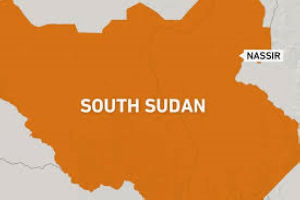The many Ghanaians who expect the country’s revenue would be boosted this year by windfall tax revenue from Jubilee Oil, which made entry onto the world crude oil market in January 2011, are in for a major disappointment.
The Business Analyst can reveal that as far as corporate tax revenue is concerned, the country is not likely to get a dime from the Jubilee partners at least for the 2011 and 2012 financial years in spite of the favourable prices that have prevailed on the international market for crude oil, also called ‘black gold.’
This situation arises from a combination of the investment regime that provides for the partners to start recouping their investments from the year of commencement of production as capital allowance, as well as production shortfalls and the additional costs associated with dealing with them.
Investment recovery
Capital allowance is a tax relief available for businesses to recoup their investments in plant and machinery, fixtures and fittings, and vehicles. Under the scheme, businesses claim tax relief on part of the purchase cost of their assets during the year of purchase and in subsequent years at defined rates charged to their profit and loss accounts.
Under Ghana’s petroleum laws, all expenses ranging from exploration, capital expenditure, development and operational costs prior to the year of commencement of production are to be amortized over a five-year period from the first year of commercial production.
Preproduction expenses to be recovered over the five-year period from 2010 relates to exploration, plant and equipment, field development comprising building of facilities for extraction of oil and gas, such as drilling of wells, including the cost of drilling dry holes, and the laying of the supporting infrastructure for production, interest expense, and general and administrative expenses.
For the Jubilee Field, development costs also include the daily bareboat charter rate of $293,000 for the floating production, storage and offloading vessel, FPSO Kwame Nkrumah, MV21.
Even though exploratory drilling costs are capitalized when incurred, the applicable costs are charged to the year’s accounts as expenses where the wells turn out to be commercially unsuccessful or dry holes. Costs incurred in drilling and equipping development wells, including unsuccessful development wells, are however capitalized. Operational costs, which relate to the operation and maintenance of wells and equipment for the production of oil and natural gas, are however treated as expenses charged to the year’s accounts. Total expenditure by the Partners, as of the end of 2010, amounted to a little over $4 billion.
Year of Commencement
‘Year of commencement’, under the Petroleum Income Tax Law, PNDC Law 188, is defined to mean ‘in relation to Petroleum, the year of assessment in which the Contractor first produces petroleum under a programme of continuous production for sale’.
Commercial production from the Jubilee Field commenced on 28thNovember 2010 and it was officially commissioned by President John Evans Atta Mills on December 15. The first parcel of 649, 064 barrels of Jubilee Oil, owned jointly by Field Operator, Tullow Ghana Limited and the EO Group, was however lifted on January 5, 2011.
3-Lean-Years?
The first recovery of 20% of these pre-production investments, in the region of $800million, was therefore charged against the 2010 financial year accounts. However, since there was no crude lifting in that year for sale, the partners did not receive any revenues leaving that side of their accounts with nothing to show, therefore translating into huge losses for the year.
The 2011 financial year therefore opened with the huge losses brought forward from 2010. This will be charged against the 2011 profit and loss accounts, meaning that in reality, the Jubilee Partners are going to start recovering from the first year’s revenue what they must recover in two years – 2010 and 2011! In effect, instead of the five-year period for prorated recovery of preproduction investments estimated to be a little over $4billion, the Jubilee partners are going to recover their investments over a shorter period of four years!
The 20% capital allowance for the 2011 financial year comes as an addition to the year’s operational expenditure, thus compounding the expenditure position on their books.
Production Shortfall
The situation is worsened by the Jubilee Field still producing at about 85,000 barrels of oil per day (b/d), which is 35,000 barrels short of the plateau of 120,000 b/d earlier projected to have been attained by now under the current phase of production.
The shortfall arises, partly, from a development well that missed the field reservoir and according to the Field’s Technical Operator, Kosmos Energy, will be sidetracked to link up with the reservoir. This also comes at an additional cost to the project.
Furthermore, development of the second phase of the Jubilee Field to double production is earmarked to commence in 2012 and that will further balloon the expenditure for that year, unless there is conscious effort to control the level of investments that could be made.
Jubilee Operator, Tullow has already secured Seadrill’s West Leo, an ultra deepwater semi-submersible rig, which is under construction at Singapore’s Jurong Shipyard and scheduled to begin work in April next year.
Since corporate tax is chargeable to profits, with the partners having only losses to show for 2010 and are going to post same for 2011 and possibly 2012, the country cannot get any corporate taxes from their operations for 2010, 2011 and 2012 financial years!
The Upside
Whereas the early years for investment recovery would deny the country its much-needed tax revenue, it only postpones a potential for windfall taxes when the capital allowance is exhausted, provided world crude price is good. The Jubilee partners have been lifting crude oil from the FPSO Kwame Nkrumah, MV 21 under a formula that takes into account the stake-holdings of every partner. Over 20 parcels, each containing about 990,000 barrels, of crude oil have been lifted from the Jubilee Field by October, since the first lifting in January this year.
Local Discontent
Many local corporate and expectant individuals have expressed misgivings about the lack of opportunities for them to participate and benefit from the opportunities that the oil sector in Ghana presents.
A local content policy that has been formulated to ensure progressive local content and participation in the oil sector is yet to get a legislative backing that would make it enforceable. The proposed legislation, which has already received Cabinet approval, is said to be receiving fine-tuning from sector agencies before it gets to the Attorney-General for final drafting for onward transmission to Parliament for consideration.
The policy framework recognizes the limited capacity of locals at this early stage of the production process and places an obligation on foreign companies to draw comprehensive training programmes and build local capacity through participation.
The limited local content and participation at this stage means the chunk of the expenditure being recovered from the early oil is going to foreign businesses. Already, the Ministry of Energy has summoned registered service providers to a stakeholders’ meeting on November 9, 2011, which the Deputy sector Minister in charge of Petroleum, Hon. Emmanuel Armah-Kofi Buah, says will go a long way towards achieving the objective of the policy.
The Jubilee Field
The Jubilee Field in Ghana is an area that straddles both the West Cape Three Points ("WCTP") and Deepwater Tano ("DT") Blocks. The area covers the two successive discoveries by the Mahogany 1 and Hyedua wells within the WCTP and DT respectively in 2007 they were unitized for optimum performance, with Tullow Ghana limited as Operator.
Tullow operates the DT license, holding 49.95%, along with Kosmos Ghana and Anadarko West Cape Three Points each holding 18%, Ghana National Petroleum Corporation (GNPC) 10% and Sabre Oil and Gas Holdings, 4.05%.
Kosmos remains operator of the WCTP Block outside the Jubilee Unit area. Kosmos Energy operates the WCTP block with 30.875% interest, the same as Anadarko, with Tullow Ghana Limited having 26.396% interest, whilst GNPC increased its holdings from 10% to 12.5% on commerciality, whilst Sabre Oil and Gas Holdings has 1.854% working interest.
Under an Unitisation and Unit Operating Agreement (UUOA) signed among the Jubilee Partners on July 13, 2009 with the Ministry of Energy, the discovered fields have been jointly developed to optimize resource recovery. Tullow became the Unit Operator, with Kosmos as Technical Operator. j.atokobbie@yahoo.com
Business News of Friday, 4 November 2011
Source: by j. ato kobbie, managing editor












